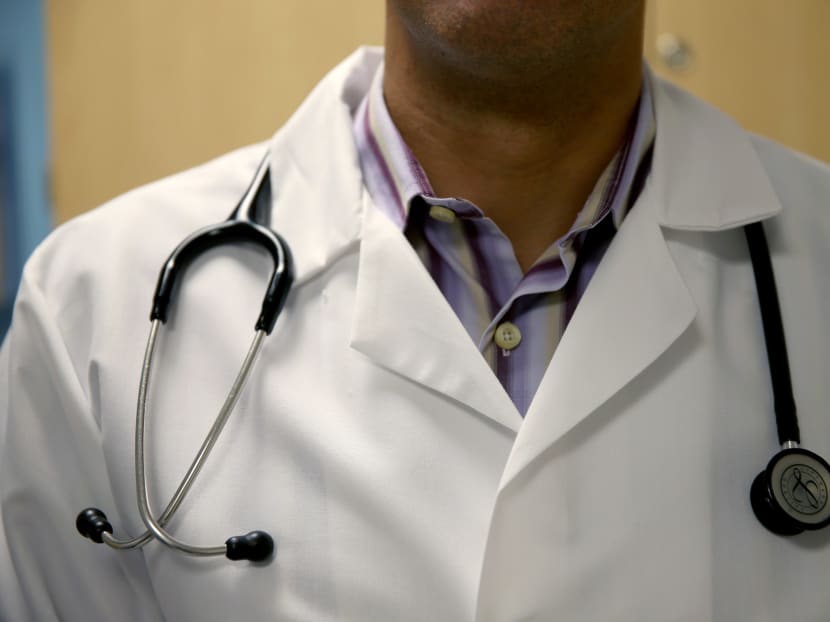Concerns in Parliament over ‘defensive medicine’ after doctor’s suspension
SINGAPORE — Senior Minister of State for Health Lam Pin Min yesterday cautioned doctors against practising “defensive medicine”, saying that this deviates from good clinical practice and would unnecessarily increase healthcare costs.

Defensive medicine typically refers to the practice of conducting tests and procedures not to advance a medical diagnosis, but to protect the doctor from a potential lawsuit due to medical malpractice. Photo: AFP
SINGAPORE — Senior Minister of State for Health Lam Pin Min yesterday cautioned doctors against practising “defensive medicine”, saying that this deviates from good clinical practice and would unnecessarily increase healthcare costs.
His comments in Parliament came after Dr Lim Wee Kiak, Member of Parliament (MP) for Sembawang GRC, asked if there were guidelines for doctors to “send all (patients) for detailed diagnostic tests to avoid misdiagnosing rare medical conditions”.
Defensive medicine typically refers to the practice of conducting tests and procedures not to advance a medical diagnosis, but to protect the doctor from a potential lawsuit due to medical malpractice.
Other MPs also posed similar questions as Dr Lim on the recent three-month suspension of Dr Chia Foong Lin, a senior paediatrician who had failed to diagnose a rare children’s disease. Dr Chia, 56, who practised at Chia Baby and Child Clinic in Clementi, was on call at Gleneagles Hospital on Feb 25, 2013, when a one-year-old toddler was admitted with high fever. The boy was warded for three days.
A disciplinary tribunal found that Dr Chia had allowed the child to have prolonged fever without ordering more tests to see if he had Kawasaki disease, in which the blood vessels become inflamed. The late diagnosis put the child at risk of severe cardiac complications, the Singapore Medical Council said in June this year.
Dr Chia’s appeal to the High Court was later thrown out.
Dr Lim asked if the Health Ministry could issue standard practice guidelines on diagnosis for rare diseases, but Dr Lam said that doing this would “neither (be) possible nor practical”. “Doctors would have to exercise their clinical judgment in such situations,” he replied.
In this toddler’s case, there are already international guidelines on what warrants further investigations to diagnose the Kawasaki disease, Dr Lam added, citing symptoms such as persistent fever, red eyes, cracked lips and a rash.
While there are no studies in Singapore on defensive medicine, international studies — mainly comprising surveys of doctors — have noted the high prevalence of defensive-medicine practices overseas, resulting in unnecessary increases in healthcare costs, Dr Lam said in response to a question by Ms Tin Pei Ling, MP for MacPherson.
“Other international studies have also suggested that a substantial fraction of malpractice claims are a result of a failure (in) doctor-patient communication,” he added.






